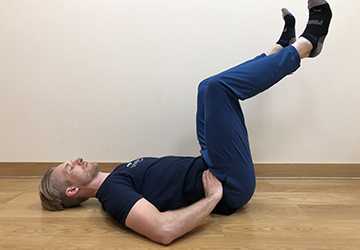Health Benefits of Regular Sauna Use
Saunas have been popular in various cultures for centuries, with their roots deeply rooted in Finnish tradition. Modern saunas are now known worldwide for a variety of health benefits. This article explores the health benefits and effects of saunas and provides practical advice for safe and effective sauna use.
So if you're wondering how you can improve your health with a sauna, read on and learn how this activity can improve your physical and mental health at the same time!

Cardiovascular Health
Regular sauna use has been shown to significantly improve cardiovascular health. Studies show that the heat from a sauna can increase heart rate and improve circulation, as can moderate exercise. This cardiovascular activity can help lower blood pressure and the risk of heart disease. According to one comprehensive review, people who took a sauna four to seven times a week had a 50% lower risk of cardiovascular disease than those who only took a sauna once a week.
The benefits of regular sauna use include improved blood vessel function. The heat dilates blood vessels, increasing blood flow and reducing stress on the heart. This is especially beneficial for people with high blood pressure or other cardiovascular problems.
Mental Health and Stress Relief
Sauna therapy can significantly improve mental health. Endorphins are the body's natural "feel-good" chemicals that reduce stress and promote relaxation. The heat from a sauna causes them to be released. People who regularly use saunas also have a lower risk of developing conditions such as depression and anxiety.
In addition, sitting quietly in a sauna can act as a meditation and can relieve everyday tensions. This meditative quality and the physiological consequences of heat make it an effective means of maintaining mental health and enhancing the health effects of saunas.
Pain Relief and Muscle Relaxation
Saunas are known to relieve pain and relax muscles. The heat helps relax tense muscles, relieve joint discomfort, and treat conditions such as arthritis. This is especially beneficial for athletes and people with chronic pain. Increased blood flow to muscles and joints aids healing and reduces inflammation, which is one of the benefits of regular sauna use.
Research shows that saunas can relieve chronic pain by reducing inflammation and increasing the synthesis of anti-inflammatory chemicals. This makes them a useful natural remedy for treating pain and improving overall body function.
Skin Health
The heat from a sauna stimulates sweating, which cleanses the skin and removes toxins. Improving blood flow to the skin can also improve its health and appearance. Regular sauna use can promote faster healing and reduce inflammation, which can help treat conditions such as acne, psoriasis, and eczema.
• Sweating in a sauna opens up your pores, which washes away dirt and impurities. This detoxifying effect makes the skin look clearer and more vibrant.
• Improved blood circulation provides more oxygen and nutrients to the skin and ensures a healthy glow.
Scientific Research
Numerous studies have proven the benefits of regular sauna use. For example, a study conducted in Finland found that men who regularly went to saunas had a 66% lower risk of dementia and Alzheimer's disease. This is due to the fact that regular sauna use improves cardiovascular health and reduces inflammation.
Another study highlighted its benefits for people with lung disease. Saunas can improve lung function and relieve symptoms in people with asthma and chronic bronchitis. The heat helps open the airways and reduces mucus, making it easier to breathe.
Best Practices for Saunas
It is important to follow some best practices to maximize the benefits of a sauna.
• Hydrate: Drink plenty of water before, during, and after a sauna to avoid dehydration.
• Avoid alcohol: Avoid alcohol and certain medications, which can increase the risk of overheating and other complications.
• Session length: Limit sauna sessions to 15-20 minutes to avoid overheating.
• Listen to your body: If you start to feel dizzy, lightheaded, or unwell, leave the sauna immediately and calm down.
People with certain health problems, such as high or low blood pressure, heart disease, or kidney problems, should consult a doctor before using a sauna. Pregnant women and small children should also avoid saunas unless otherwise directed by a doctor.
Improving the Sauna Experience
For those who want to enhance their sauna experience, hot and cold therapy can be a helpful addition. You can alternate between sauna sessions and cooler baths, such as cold showers or ice baths. The sudden change in temperature can increase adrenaline levels, improve blood circulation, and increase the overall benefits of a sauna session.
• Hot and cold therapy: Alternating between hot and cold can support muscle recovery and reduce inflammation. Cold contact helps constrict blood vessels and reduce swelling, while heat promotes relaxation and healing.

In addition, there are different types of saunas to choose from, each with unique benefits.
• Traditional saunas: use stones to generate heat.
• Infrared saunas: use infrared radiation to directly heat the body.
• Portable saunas and sauna blankets: offer practical and affordable alternatives for home use.
Each type of sauna offers health benefits, so it’s worth considering a variety of options to see which one best suits your needs.
Conclusion
The health effects of saunas have been well documented. Saunas offer a natural and effective way to promote overall well-being by improving cardiovascular health and mental health, as well as relieving pain and skin health. By following best practices and using both hot and cold therapies, you can maximize these benefits while enjoying a safe and comfortable sauna experience.
Regular sauna sessions can be an excellent addition to any wellness program. Whether you’re looking to improve your physical health, boost your mental health, or simply rest and relax, saunas offer numerous benefits that can enhance your quality of life. So take the time to enjoy this time-honored tradition and benefit from improved health and well-being.





